

The Human Relations and Counselling Programme
Prospectus 2025
We are a charity that exists to improve mental health and emotional wellbeing in Scotland
PROFESSIONAL TRAINING I CPD I COUNSELLING AND PSYCHOTHERAPY SERVICE



The Human Relations and Counselling Programme
We are a charity that exists to improve mental health and emotional wellbeing in Scotland
PROFESSIONAL TRAINING I CPD I COUNSELLING AND PSYCHOTHERAPY SERVICE
HDS is a not-for-profit organisation and our mission is to relieve mental and emotional distress by increasing the availability of, and access to, high quality psychodynamic and psychoanalytic counselling and psychotherapy for all who need them.
Our objectives are to improve health and social care professionals’ understanding of, and ability to apply, psychodynamic ways of thinking; and to reduce mental distress by delivering psychodynamic counselling and psychoanalytic psychotherapy to the public.
We offer the following:
A range of professional training courses leading to academic qualifications.
Short courses that can form part of a training escalator for professionals.
CPD events including conferences, workshops and seminars.
Counselling and psychotherapy directly to individuals and families, and as part of employee assistance programmes.
At the heart of all our work are the psychodynamic, psychoanalytic and systemic ideas that offer a profound understanding of how people relate to one another and the central role of human relationships in our mental health and emotional wellbeing.
Hundreds of professionals have been equipped by HDS and have used the experience in their work as teachers, social workers and in other ‘people-facing’ professions, for example. Some have shared their experience by returning to teach on our courses, contributed to our conferences and events, and by publishing books and papers.
We wish you all the best in your pursuit of developing your career and hope that you choose HDS to help you further your knowledge and skills.
To keep up to date with our news, information about our academic training and latest events, subscribe to the HDS Newsletter. Sign-up on our website www.hds.scot
HDS offers a range of professional and academic training courses, short courses and continuing professional development (CPD) opportunities.
Our training is for people working in ‘people-facing’ professions. For example: health and social care services, teachers, third sector and private practice counselling.
Our training courses for professionals translate the psychodynamic, psychoanalytic and systemic ideas, on which all our works is based, into practical tools for understanding the central role that human relationships play in our mental health and emotional wellbeing.
For example, our Child and Adolescent Psychoanalytic Psychotherapy (CAP) programme is a practical and theoretical training course in psychoanalytical psychotherapy with children and young people. This course is the only one in Scotland which is approved by the Association of Child Psychotherapists (ACP)
Hundreds of professionals have been equipped by HDS and have used the experience in their work as teachers, social workers and in other ‘people-facing’ professions, for example. Some have shared their experience by returning to teach on our courses, contributed to our conferences and events, and by publishing books and papers.
We believe our professional training will help to relieve mental and emotional distress by increasing the availability of, an access to, high quality psychodynamic and psychoanalytic counselling and psychotherapy for all who need them.

The ‘psychodynamic’ approach in counselling and psychotherapy is based on awareness of the importance of early relational experience on us as adults and how this influences us at an unconscious level, at the level of feelings, which powerfully underpin our sense of self. The evidence gained through neuroscientific research strongly supports this perspective.
We grow and develop throughout life, in and through our relationships, and better understanding of these, and a greater sense of personal autonomy, are key aims of this approach.

Psychodynamic approaches, in contrast to many other types of help, support individuals to go beyond self knowledge which is consciously available to them, and supports these individuals to address difficult and painful issues which they have been (unconsciously) hiding from themselves.
Treatments and interventions for mental ill health come in many different forms. Most have a conventionally scientific approach to problem solving. They have a tendency to objectify the problem to be solved and respond according to what type of problem it turns out to be.
The goal of most of these treatments is relief from psychological pain. These are the types of help most commonly available through the NHS. They do work, but not for everyone, and sometimes the benefits are only temporary. Psychodynamic approaches are different. They have a very different focus and way of helping an individual. Firstly there is a recognition that we are all different and the uniqueness of the individual seeking help is the starting point for therapy. Secondly the ongoing focus through therapy is the unique subjective experience and sense of self of the individual. Thirdly, the goal is enhanced self knowledge; and long term healing and personal growth.
Find out more about the psychodynamic approach on our website
HDS was formed to carry on the work of the Scottish Institute of Human Relations (SIHR), established by Dr John (Jock) Sutherland and others in 1971 with the aim of expanding the application of psychodynamic thought in Scotland.
We offer the training and services previously delivered by the SIHR. These have at their heart the psychodynamic, psychoanalytic and systemic ideas that offer a profound understanding of how people relate to one another.

Hundreds of professionals have been equipped by HDS and have used the experience in their work as teachers, social workers and in other ‘people-facing’ professions, for example. Some have shared their experience by returning to teach on our courses, contributed to our conferences and events, and by publishing books and papers.
We believe our professional training will help to relieve mental and emotional distress by increasing the availability of, an access to, high quality psychodynamic and psychoanalytic counselling and psychotherapy for all who need them.
Our Child and Adolescent Psychoanalytic Psychotherapy (CAP) programme, for example, is a practical and theoretical training course in psychoanalytical psychotherapy with children and young people. This course is the only one in Scotland which is approved by the Association of Child Psychotherapists (ACP)
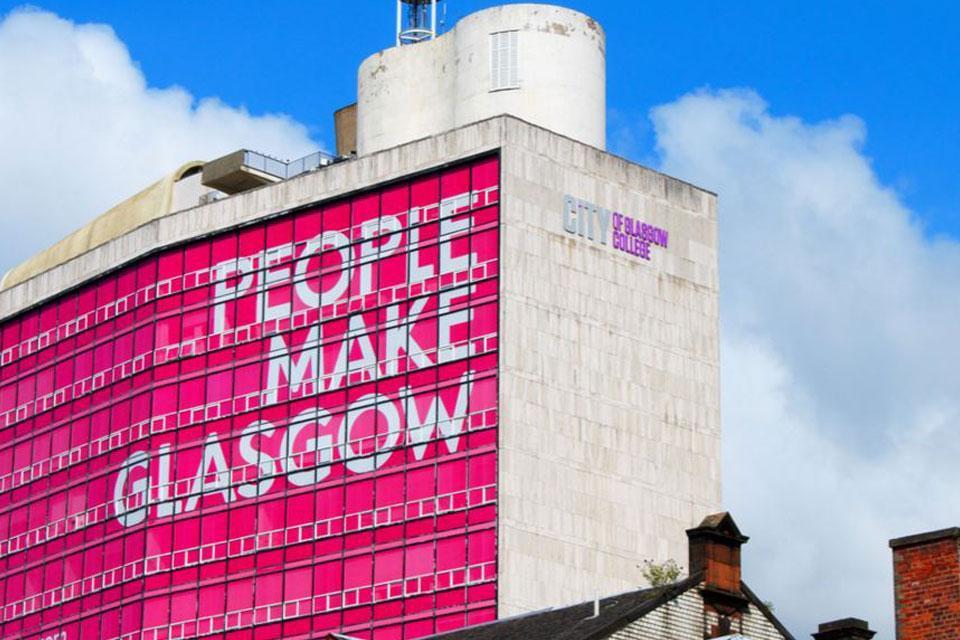
HDS is located in central Glasgow. We have a Training Suite where some of our teaching takes place. Our dedicated library for students provides access to resources that help students with assignments and further study.
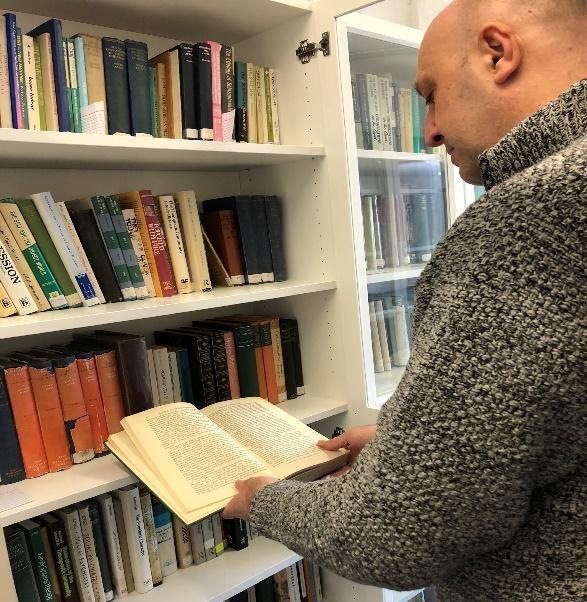
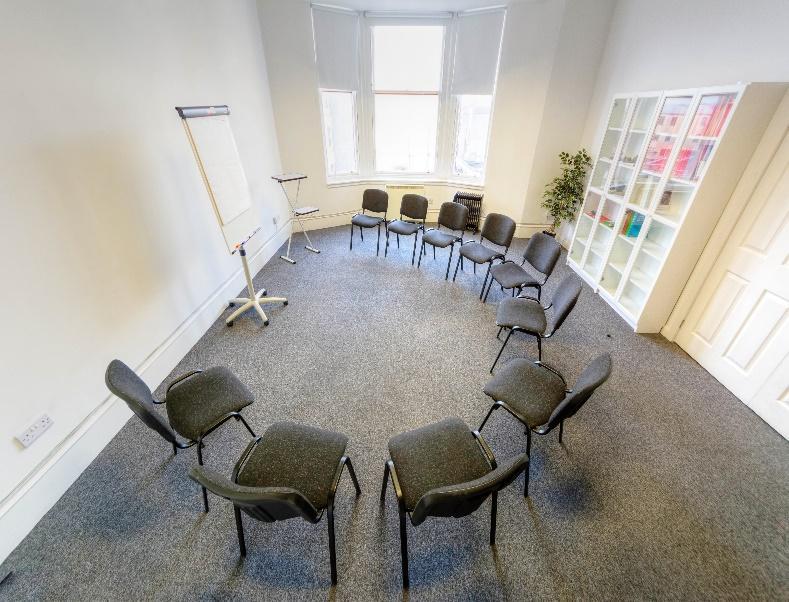
Welcome to the Human Relations and Counselling Programme. It consists of 3 parts to provide different levels of training and qualification.
All 3 parts of our Counsellor training are validated by COSCA. In addition, our PGDip/MSc is accredited by Robert Gordon University (RGU) and leads to a RGU award at SCQF level 11.
A Certificate in the Foundations of Human Relations and Counselling will be awarded after the satisfactory completion of the one-year course.
This course is the first step to becoming a Counsellor in Scotland. Completion of this Certificate is often the prerequisite for acceptance onto Diploma or Post Graduate Diploma Counselling courses in Scotland.
As with all HDS professional trainings, this training is led by experienced psychodynamic Counsellors and Psychotherapists.
The course is also ideal for people who are looking to improve their personal and professional interactions or to explore further steps towards gaining qualifications in counselling and psychotherapy.
Teachers, social workers and other ‘people-facing’ professionals are offered invaluable insight into ‘how we come to be as we are’, as well as highlighting the possible pitfalls and disappointments that contribute to a range of emotional or behavioural difficulties and dilemmas that we may encounter.
A Postgraduate Diploma (PGDip) in Human Relations and Counselling will be awarded after the satisfactory completion of this 2-year part-time course.
The PGDip course provides a route to professional accreditation as a Counsellor for adults and young adults using the application of psychodynamic principles and ideas in a mandatory clinical placement.
This is the minimum level of qualification required to work as a Counsellor.
Completion of this third year of our SCQF level 11 training leads to an award of MSc in Human Relations and Counselling. In addition to successfully completing Year 1 and Year 2 (as above), students who successfully complete their research and Capstone Project in Year 3 will graduate with an MSc.
This course is an advanced professional training for Psychodynamic Counsellors.
We also welcome Counsellors who have graduated elsewhere with a PGDip who wish to advance their training.
Our aim is to provide a training escalator for professionals working with adults, children and young people.
With this in mind, we have recently developed a Counselling Children, Young People and Families Post Qualifying Certificate. This qualification is aimed at Counsellors who have already achieved a Counselling PGDip and wish to be able to specialise in work with this younger age group and their families. Please see the separate prospectus about this course.
We hope you find a course that helps you to develop your skills, experience and career.
For more information about these courses, please continue through this prospectus.
This is a 2 or 3-year, part-time, modular programme delivered over 2 semesters a year from September to June. The course comprises of:
• Theory seminars, including psychodynamic theories of development, identity, mental health, family and group processes, trauma and loss, with modules on research and a Capstone Project in year 3.
• Experiential work, skills practice and group supervision in a learning group.
• Personal tutorials.
• Placement in an approved professional counselling setting (minimum 120 hours) with independent individual clinical supervision (20 to 25 hours). An additional 100 hours supervised practice is required in the third, MSc year.
• Personal therapy (minimum 40 hours).
The PG Diploma in Human Relations and Counselling provides a route to professional accreditation as a counsellor for adults and young adults using the application of psychodynamic principles and ideas in a mandatory clinical placement. The MSc is an advanced professional training.

The course is ideal for people who currently use elements of counselling in their day-to-day work and would like to take further steps towards enhancing their practice and deepening their professional capacity.
It is also for individuals looking for a change in career. Participants who successfully complete all elements of the course at the PGDip can register as a Psychodynamic Counsellor.
By choosing to focus on the psychodynamic relational perspective, you will learn about the importance of early life experience and of our human environment in determining modes of human relationships and patterns of behaviour. The course focuses on the latest research findings about infant and child development, and on evidence-based psychoanalytic ideas; it includes attachment theory, leading-edge trauma theory developments, day-to-day existential dilemmas, families, groups, advanced interpersonal and clinical skills, group work, plus organisational dynamics. The psychodynamic and relational ethos underpins the interactions of students, supervisors and staff.
HDS and Robert Gordon University have collaborated to produce an innovative and exciting Masters programme.
This three-year part-time training will lead to the award of MSc and is an advanced professional training for Psychodynamic Counsellors.
The MSc has been designed to provide students with an excellent clinical training, fully integrated with the knowledge, research and experience of the skills that will be necessary for those working in the modern NHS, the third sector and in private practice. Students are qualified to practice as a Psychodynamic Counsellor on completion of the Post Graduate Diploma level (PGDip) and can choose to complete the programme at that level.

The course is ideal for people who currently use elements of counselling in their day-to-day work and would like to take further steps towards enhancing their practice and deepening their professional capacity.
It is also for individuals looking for a change in career. Participants who successfully complete all elements of the course at the PGDip level can register as a Psychodynamic Counsellor. The third, Masters year, focussing on research with an emphasis on linking research with practice.
The Diploma (PGDip) and Masters (MSc) programme in Human Relations and Counselling aims to:
• Prepare students to become practising Psychodynamic Counsellors who work sensitively, competently and ethically.
• Equip students to act in an autonomous practitioner role as Psychodynamic Counsellors with individual clients by the acquisition and integration of the relevant clinical skills, a theoretical framework, and enhanced critically reflective self-awareness, thus bringing students to the level of eligibility in respect of training requirements to apply for COSCA or BACP accreditation.
• Support students in developing a familiarity with the range of social, cultural and religious contexts from which clients may be drawn, so that they may acquire competence as a professional and culturally sensitive practitioner.
• Facilitate and develop students’ awareness of the ethical principles and personal qualities required to practise as a Psychodynamic Counsellor.
• Develop students’ capacity to use clinical supervision to support competent and ethical practice and professional development.
• Enable students to become confident in the use of research skills and to use those skills in the development of the Psychodynamic Counselling research base.
8 modules over 3 years, 180 SCQF points, integrating theory, practice and research.
• Year 1 (PGCert): Professional Practice 1, The Psychodynamics of Being Human, Families, Groups and Organisations.
• Year 2 (PGDip): Professional Practice 2, Identity, Trauma.
• Year 3 (MSc): Research, Capstone Project.
Supervised clinical practice and personal therapy are additional requirements of the course.
For more information about the programme timetable, please visit our website: www.hds.scot
The course has full professional validation by COSCA.
This programme is managed, delivered and awarded by Human Development Scotland and leads to an award on the Scottish Credit & Qualifications Framework (SCQF). It has been credit rated by Robert Gordon University at SCQF level 11.
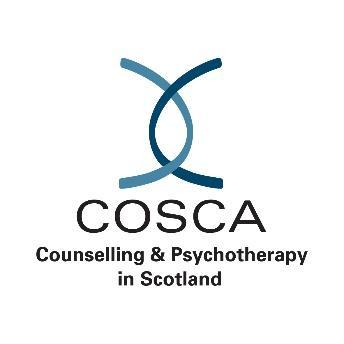

PG Dip/Masters in Human Relations and Counselling
All applicants are considered based on suitability for the course, irrespective of gender, ethnic origin, nationality, social class, parental status, disability, sexual orientation, religious belief or age. Applicants are normally required to:
• Have a bachelor’s degree from a UK institution or equivalent.
• Have completed an approved initial counselling skills training course or equivalent (applicants who have completed Modules 1 to 4 of FHRC or the COSCA Certificate in Counselling Skills will be considered).
• Have experience of working with people in a field relevant to counselling and a readiness to engage effectively in a counselling placement.
• Have the capacity to work independently to ensure that they can achieve the standards necessary to complete the course satisfactorily.
• Have a willingness to engage actively in all aspects of the course, including their own personal therapy.
If you are questioning whether you meet all of the above criteria, please contact us to discuss further
Entry to the MSc year is through completion of the PGDip Human Relations and Counselling in the previous 5 years.
Equivalent PG Diplomas from other institutions will be considered.
Costs
For the latest information about fees, please visit our website: www.hds.scot
Tuition fees do not include personal therapy or work placement clinical supervision (about 20 to 25 hours). Applicants should take this into account when applying.
Course fees are reviewed annually. They will usually increase in line with inflation and reflect any increase in university accreditation/registration fees.
If you have any questions about the programme, please email: courses@hds.scot or call us on 0141 331 2419
Application forms are located on our website: www.hds.scot where you will also find the latest information about application deadline dates and interview dates.
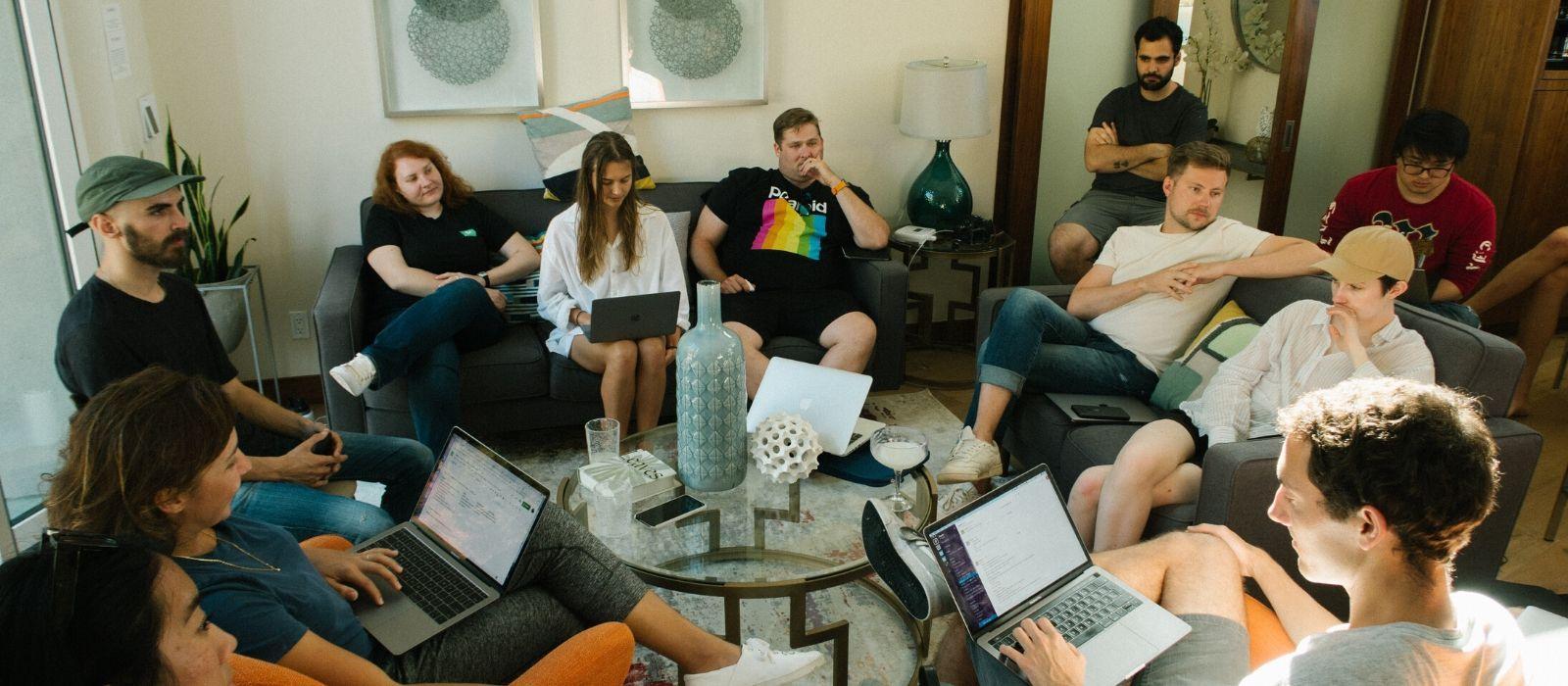
Hundreds of professionals have been equipped by HDS and have used the experience in their work as teachers, social workers and in other ‘people-facing’ professions, for example.
Some of our former HDS students have shared their experience by returning to teach on our courses, contributed to our conferences and events, and by publishing books and papers.
All our courses are evaluated on a regular basis and the feedback helps us to maintain a high quality of teaching. The teaching staff have a variety of backgrounds and experience which provide a rich blend of teaching styles and different perspectives to help our students.
As part of our training escalator, we invest time to host CPD events which current and former students, teaching staff and external guests are invited to attend. We seek speakers from across the UK who can present an engaging and relevant subject matter, whilst also facilitating both large and small group discussions to encourage the sharing of insight and experience. These events are also great for peer group support and networking.
The COSCA Certificate in Counselling Skills / Foundations of Human Relations and Counselling programme provides an introduction to psychodynamic ideas about what it means to be human, together with experiential training in communication and counselling skills incorporating psychodynamic principles. This course gives unparalleled insight into the complexities of human interactions and is a foundation for the use of advanced communications and counselling skills.

This course is the first step to becoming a Counsellor in Scotland. Completion of this Certificate is often the prerequisite for acceptance onto Diploma or Post Graduate Diploma Counselling courses in Scotland.
As with all HDS professional trainings, this training is led by experienced psychodynamic Counsellors and Psychotherapists.
The course is also ideal for people who are looking to improve their personal and professional interactions or to explore further steps towards gaining qualifications in counselling and psychotherapy. Teachers, social workers and other ‘people-facing’ professionals are offered invaluable insight into ‘how we come to be as we are’, as well as highlighting the possible pitfalls and disappointments that contribute to a range of emotional or behavioural difficulties and dilemmas that we may encounter.
By choosing to focus on the psychodynamic relational perspective, you will learn about the importance of early life experience and of our human environment in determining modes of human relationships and patterns of behaviour. The psychodynamic and relational focus underpins the interactions of students and staff.
Foundations of Human Relations and Counselling
Module structure will consist of a mixture of taught seminars, discussion groups and one-toone sessions some of which will be recorded and used as a teaching aid with the rest of your group. Participants will also have access to relevant reading material
Class sizes are small, with each module having a maximum of 12 students, in order to deliver the best and most enriching learning experience for students.
The course is validated by COSCA as an equivalent to their ‘Certificate in Counselling Skills’, which is considered by most institutions as a pre-requisite for anyone considering further study to become a counsellor or psychotherapist. This course does not qualify you to practice as a counsellor.
If you successfully complete the Foundations of Human Relations and Counselling, you can apply for the Diploma in Human Relations and Counselling.
A postgraduate-level Certificate in the Foundations of Human Relations and Counselling will be awarded after the satisfactory completion of the course. Participants should aim for 100% attendance. A minimum of 85% attendance is required to complete the course.
For the latest information about fees, please visit our website: www.hds.scot
Course fees are reviewed annually. They will usually increase in line with inflation

If you have any questions about the programme, please email: courses@hds.scot or call us on 0141 331 2419.
Application forms are located on our website: www.hds.scot where you will also find the latest information about application deadline dates.

HDS is not able to offer funded places for the Human Relations and Counselling programme. Possible sources of funding are:
The Sutherland Trust - www.sutherlandtrust.org.uk
The Sutherland Trust exists to stimulate thinking about psychodynamic approaches to health, social care and education.
The Guntrip Trust - www.guntriptrust.com
The Trust offers financial support to people in religious vocations.
The Glasgow Educational and Marshall Trust – www.gemt.org.uk
The Trust supports individuals who have lived in the city of Glasgow for at least 5 years.
Funding Scotland – www.funding.scot
A directory of grant giving bodies dealing mainly with organisations but some may award grants to individuals.
FindAMasters funding guide www.findamasters.com/funding/guides/postgraduate-loans-scotland.aspx
FindAMasters is a directory of Masters degrees and postgraduate qualifications at universities around the world.
Your employer
Students’ employers often contribute to fees. Each employer will have their own process for applying for support. Speak to your manager or HR department.
For more information on funding, please visit our website: www.hds.scot/funding

Course enquiries
Website www.hds.scot
Email courses@hds.scot
Telephone 0141 331 2419
Write to us
Stay connected
Twitter @HDScotland
Facebook @HDScotland
LinkedIn Human Development Scotland
Victoria Chambers, 142 West Nile Street, Glasgow G1 2RQ
To keep up to date with our news, information about our academic training and latest events subscribe to the HDS Newsletter.
Sign-up on our website: www.hds.scot

A Scottish Charitable Incorporated Organisation Charity No. SC043664
Registered office: Victoria Chambers, 142 West Nile Street, Glasgow G1 2RQ
0141 331 2419 I www.hds.scot
We are a charity that exists to improve mental health and emotional wellbeing in Scotland
PROFESSIONAL TRAINING I CPD I COUNSELLING AND PSYCHOTHERAPY SERVICE Copyright Human Development Scotland